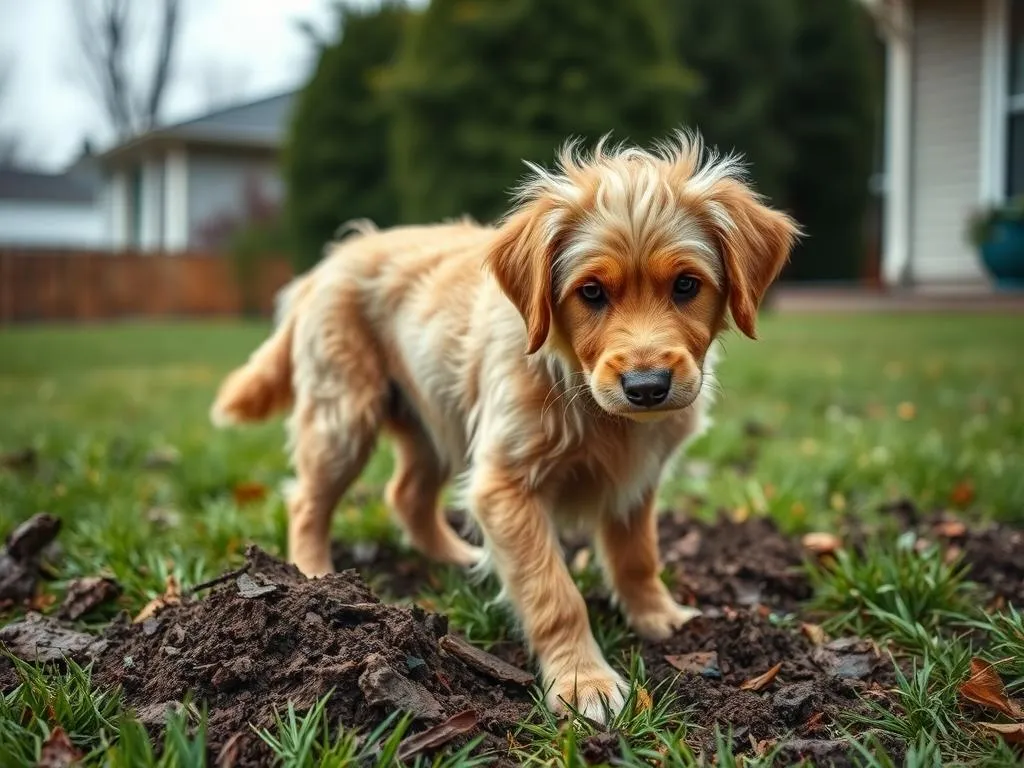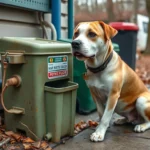
Introduction
Dog ownership comes with a myriad of joys—unconditional love, companionship, and the delightful antics of our furry friends. However, it also presents its own set of challenges, particularly when it comes to maintaining a clean and healthy yard. One of the most pressing issues is dealing with dog waste. Not only does it impact the aesthetics of your outdoor space, but it also poses health risks and environmental concerns. So, what really dissolves dog poop in yard? This article explores various solutions to this common problem, ranging from traditional methods to natural and chemical dissolvers.
The Importance of Cleaning Dog Poop
Health Risks
Cleaning up after your dog is essential for several reasons, the primary one being health. Dog poop can harbor numerous pathogens and parasites, such as roundworms, hookworms, and bacteria like E. coli and Salmonella. These can pose significant health risks, particularly to children and other pets who might come into contact with contaminated soil or grass. Regularly removing waste reduces the risk of these diseases spreading and keeps everyone safe.
Environmental Impact
The environmental impact of dog waste is another vital consideration. When left unattended, dog poop can lead to nutrient overload in the soil, causing harmful runoff into nearby water sources. This pollution can disrupt local ecosystems, affecting wildlife and plants. In fact, just one dog can produce enough waste to pollute 20,000 gallons of water annually, making responsible disposal critical for maintaining a healthy environment.
Aesthetic Considerations
Beyond health and environmental issues, there’s the aesthetic aspect of maintaining a clean yard. An unkempt lawn littered with dog poop can be unpleasant for both you and your guests. It can also lead to social ramifications; neighbors may view an unclean yard as a sign of irresponsibility. Keeping your yard clean not only enhances its appearance but also contributes positively to the community.
Traditional Methods of Dog Poop Disposal
Picking It Up
The most straightforward method of handling dog waste is simply picking it up. Daily waste collection is crucial, especially if you have multiple dogs. Investing in the right tools can make this task easier and more efficient. Pooper scoopers and biodegradable bags are highly recommended, as they not only simplify the process but also minimize environmental impact.
Burying the Waste
Another method some dog owners consider is burying the poop. While this may seem convenient, it has its drawbacks. Burying dog waste can lead to soil contamination and may attract pests, such as flies and rodents. Additionally, if the waste is not buried deep enough, it can resurface or be dug up by other animals.
Natural Solutions to Dissolve Dog Poop
Enzymatic Cleaners
One of the most effective natural solutions for dissolving dog poop is using enzymatic cleaners. These products contain live bacteria and enzymes that break down organic matter, including dog waste. They are safe to use in your yard and can significantly reduce odor while speeding up the decomposition process. Popular enzymatic cleaners include products like Nature’s Miracle and Simple Green Pet Stain and Odor Remover.
Vinegar
Vinegar is another household item that can help dissolve dog poop. Its high acidity helps break down waste, making it easier to clean up. To use vinegar effectively, mix equal parts water and vinegar in a spray bottle and apply it directly to the affected area. Let it sit for a few minutes before rinsing it off with water. The vinegar will help neutralize the odor and aid in decomposition.
Baking Soda
Baking soda is known for its versatility, and it can also help with dog poop. This common household ingredient works by absorbing moisture and odors, making it easier to manage waste. To use baking soda, sprinkle it directly on the poop, let it sit for about 10-15 minutes, and then scoop up the waste. This method not only helps with the cleanup but also minimizes odors in your yard.
Other Natural Ingredients
Several other common household items can serve as natural dissolvers for dog poop. Hydrogen peroxide, for instance, is an effective cleaning agent that can break down waste and disinfect the area. Lemon juice is another option; its acidity can help dissolve poop while also leaving a pleasant scent. When using these natural ingredients, ensure you test them in a small area first to avoid any potential damage to your lawn.
Chemical Solutions for Dog Poop Dissolution
Commercial Dissolvers
If natural solutions are not yielding the desired results, you may consider commercial products specifically designed to dissolve dog waste. These products often contain powerful enzymes and chemicals that can break down waste quickly and effectively. Brands like Doggie Doo Dissolver or Pet Waste Digester are popular choices. However, it’s essential to read reviews and understand how these products work before using them.
Safety Considerations
While chemical solutions can be effective, they also come with safety considerations. Many commercial dissolvers contain ingredients that may be harmful to pets, plants, and local wildlife. Always read labels carefully and follow the manufacturer’s guidelines to minimize risks. Additionally, consider the environmental impact of using chemicals; opting for natural solutions whenever possible can be a more sustainable choice.
Preventative Measures to Reduce Dog Poop in the Yard
Training Your Dog
One of the best ways to manage dog waste is to train your dog to use specific areas for their bathroom needs. Positive reinforcement techniques can encourage your dog to associate a designated spot with potty time. Consistency is key, so take your dog to the same area regularly and reward them for going in that spot.
Using Pet Waste Disposal Systems
Pet waste disposal systems, such as doggy toilets or composting systems, can be a game-changer for yard maintenance. These systems are designed to contain and break down dog waste safely. Doggy toilets often resemble small, enclosed areas where dogs can go, while composting systems allow for natural decomposition over time. While these systems require an initial investment, they can ultimately save you time and effort in the long run.
Best Practices for Maintaining a Clean Yard
Regular Cleaning Schedule
Establishing a regular cleaning schedule is crucial for maintaining a clean yard. Depending on the size of your yard and the number of dogs you have, you may need to clean up daily or every few days. Consistency not only keeps your yard looking neat but also minimizes health risks associated with dog waste.
Yard Care Tips
Incorporating yard care practices can also help manage dog waste more effectively. Regular lawn maintenance, such as mowing and aerating the soil, can promote healthy grass that withstands the impact of dog poop. Additionally, consider creating a designated area for your dog to use, as this can help contain waste and make cleaning easier.
Conclusion
Managing dog poop in your yard is an essential part of responsible dog ownership. Understanding the various methods for disposal, whether through natural or chemical solutions, can help you maintain a clean and safe environment for your family and pets. Each yard is unique, and the best method for you may vary depending on your specific conditions and dog behavior. By implementing a combination of training, regular cleanup, and innovative disposal methods, you can ensure a cleaner outdoor space for everyone to enjoy.
FAQ Section
What is the most effective way to dissolve dog poop?
The most effective way to dissolve dog poop often depends on your yard conditions and personal preferences. Natural solutions like enzymatic cleaners and vinegar are popular for their effectiveness and safety.
Are there any risks associated with using vinegar or baking soda?
While vinegar and baking soda are generally safe for use in the yard, it’s advisable to test them on a small area first. Excessive use of vinegar can alter soil pH, so moderation is key.
How often should I clean up dog poop in my yard?
Cleaning up dog poop should be done regularly, ideally daily or every few days, depending on the size of your yard and the number of dogs you have. Consistency is crucial to minimize health risks.
Can dog poop be composted safely?
Yes, dog poop can be composted safely, but it requires proper management. Use specialized composting systems designed for pet waste to ensure safe breakdown and minimize health risks.
What should I do if my dog refuses to use the designated area for waste?
If your dog refuses to use the designated area, consider retraining them with positive reinforcement techniques. Be patient and consistent, and ensure that the area is appealing for your dog to use.









